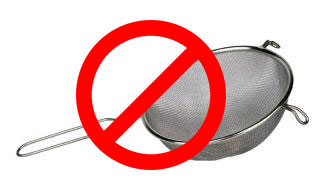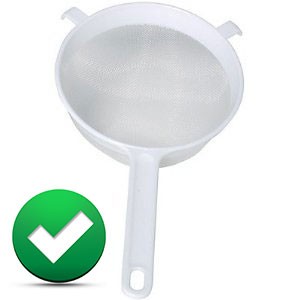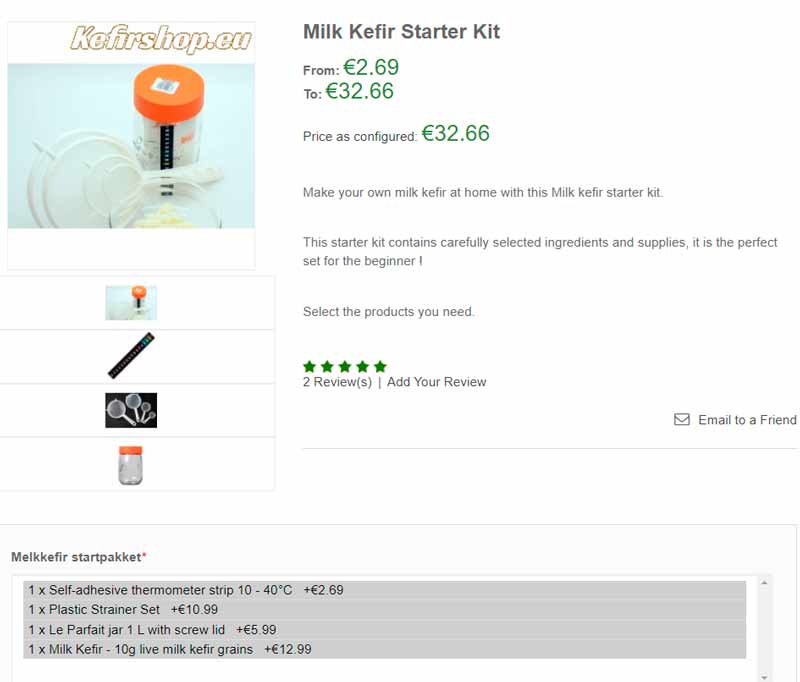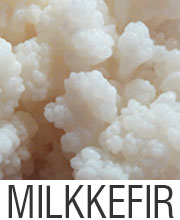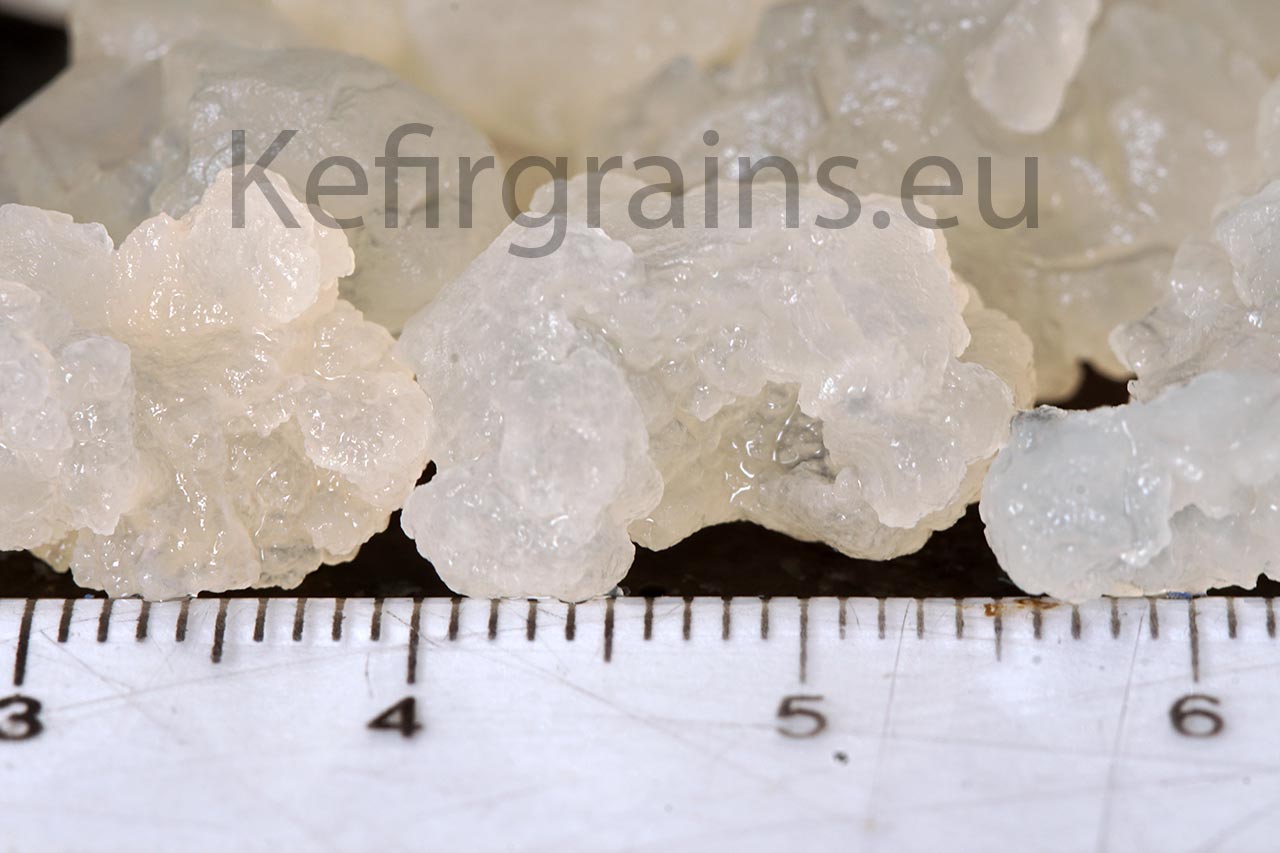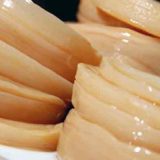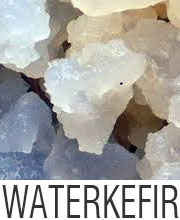Which Equipment for Making Kefir?
Choosing Equipment for making Kefir
Kefir grains are a great blessing from Prophet Mohammad and have innumerable qualities to induce good health. Hence, when making kefir milk, one must be aware of the utensils and other things used in the process. It is a big question nowadays whether metal objects can be used when preparing milk kefir.
The fact is, when this unique product was first used, there was nothing like metal utensils. But with the advancement of technology, modern people use various utensils and containers for regular cooking and storing requirements. But if you make milk kefir, you better not use metal objects. There are specific reasons why metal items cannot be used while making kefir. The first reason is that kefir grains are acidic, readily reacting when encountering reactive metals.
Which metals should be avoided?
Metals like brass, iron, copper, zinc, and aluminum are the most common reactive metals. Suppose kefir grains are stored, or kefir milk is prepared and stored in containers of any of these metals. In that case, the metallic ions of the container will encounter naturally acidic grains. If these ions from the heavy metal containers accumulate regularly, toxic levels can rise, thereby contaminating the milk thus produced. Its harmful effects can be fatal as well.
Today, stainless steel is a popular metal used to make various utensils. It is an inert metal and is therefore used in preparing kefir in stainless steel utensils. The sieves, bowls, and containers can safely store kefir water or milk, and the spoon can also stir the milk kefir.
What’s the best strainer for Kefir grains?
However, the most inert element is glass and is, therefore, the safest for storing kefir as it is non-reactive. Plastic and stainless-steel strainers can be easily used to make kefir. A bamboo strainer can work well too. It is available in varied sizes and shapes. The thin bamboo strips are unique kefir strainers. Ideas and lifestyles have changed. But if the advantages of kefir milk are to be enjoyed, one must avoid using metals. Glass, wood, or plastics are the best choices.
Can you make water kefir with a metal strainer?
Although, using a stainless-steel strainer or spoon while making water kefir will not cause an issue. The contact period between the metal utensils and water kefir will always be relatively short. Never let anything metal in prolonged contact with water kefir.
Is it necessary to rinse my kefir grains?
rinse water kefir grains as part of the rehabilitation process. Fill a shallow dish halfway with water and place a plastic mesh strainer over it. Put the grains in the sieve to wash in the water.
Kombucha and metal contact
If you use a common kitchen utensil and practical wisdom, i.e., don’t stir the kombucha with your rusted backyard spoon. So don’t be concerned about brief contact; your SCOBY will be fine.
Is stainless steel harmful to fermentation?
Before stainless steel, older metals might interact with ferments in some way. Stainless is inert; thus, it’s okay. Some people believe that using stainless steel on fermented foods is harmful, although this is untrue. However, you should avoid using copper because it is corrosive to acid.
Can stainless steel be used to make kefir?
To make and store kefir, use only glass (not crystal), wood, plastic, or stainless-steel utensils and containers. Other metals will react with kefir. The temperature of your house will determine how fast your dairy will transform into kefir.
Which type of jars are not advised for fermentation?
Avoid using metal containers, as most household metal objects will disintegrate in the acidic environment created by the ferments, making them more prone to corrode. The simplest and most successful method for sterilizing your jars is to use vinegar, hot water, and a thorough rinse.
How can I know whether my water kefir grains are alive?
To find out if your water kefir grains have died, you can check them by making them ferment a new batch. If the grains are dead, the water will be overly sweet with no indication of fermentation. Another indication is the appearance of mold on the surface.
The water kefir thickens and gets slimy; what is wrong with it?
The cultural balance can be disturbing at times. You might have too many Leucon Stoc bacteria if your water kefir is sticky and thicker than usual. They are particularly crucial for fermentation, but you can restore the balance by cutting the sugar amount, sifting the liquid, and rinsing the grains with water.
What should I do if I travel or wish to stop drinking water kefir?
You have two choices depending on how long you want the break.
Shorter break: Let the kefir stand after making it as usual with sugar and water. This approach is appropriate for absences of up to one week long. You will then get highly sour and bitter kefir. Simply tip it out after that to begin over.
More extended break: Place the grains, some water, and sugar in a jar and store them in the fridge, like the preparation jar. For up to three weeks, this works. Afterward, the kefir frequently requires one or two tries to ferment correctly.
Is it possible to substitute fresh fruit for dried fruit?
You can, indeed! Make sure the fruit peel is natural if you add it to the water kefir. The culture is harmed by insecticides, chemicals, and other additives because they weaken or eliminate the bacteria.
Fruit juices can be served either straight up or diluted. Additional aromatic components can be included, such as a sprig of mint, a few pieces of fresh ginger, or something similar. To get even more intriguing flavors, you can also use chilled tea in place of water. Removing fresh fruit from secondary fermentation is recommended after 24 to 48 hours if you use it.
Buy Live Milk Kefir Grains—Milk Kefir Starter Kit
Kefir Grains are now available to buy. We sell both Milk Kefir Grains and Water Kefir grains Online
A sachet of kefir grains in milk will be delivered to you; this liquid’s purpose is to keep the grains alive and healthy while they are transported to you. 500ml can be brewed from 10g of grains every 24 to 48 hours, and as they mature, you can make more.
All live kefir grains must settle after being acquired since they must become used to their new habitat (they are very temperature sensitive). This takes approx. 3-5 brews. Once they’re comfortable, they’ll make delicious kefir every day. Although it may not seem like you receive much, the grains deliver a powerful punch, and having too many grains when you start making them is not helpful. Since the kefir grains multiply, you may quickly increase the volume you brew if desired, as your kefir grains naturally reproduce and duplicate themselves. You will access our online resources, including written materials, instructional videos, our blog with practical advice, and complete email support. We are here to support you as you start your brewing experience, not just deliver the kefir grains and walk away.
Making Milk Kefir: A Short Guide
- Place your kefir grains in a spotless pint-sized glass or glass jar (1ltr is best)
- Fill two-thirds with whole milk (full-fat goat or cow milk to settle and feed)
- Place it in a cabinet or another area away from the sun
- Cover the jar with a spotless dish towel
- Let it rest for 24 hours or until the desired level of sour taste is reached
- When the kefir is ready, filter the kefir grains from the milk (using a plastic strainer WITHOUT METAL)
- Enjoy kefir and reuse the kefir grains. Return to step 1 now
Buy Live Organic Milk Kefir Grains with Free Shipping
€12.99 On Sale
Sale and Free Shipping in Europe
Kefir grains are a symbiotic community of yeasts and bacteria that have colonized a nutrient-rich environment of protein, sugar, and fat. After about a day, the lactose in the milk is fermented by these microorganisms, producing a sour, fizzy beverage with probiotic qualities and good for the gut. Live Milk Kefir Grains have more probiotic strains than kefir powder cultures and can be used indefinitely, saving you money over the long run. It’s your choice: free shipping or free local pickup. Kefir grains made from milk can be purchased at any time.
